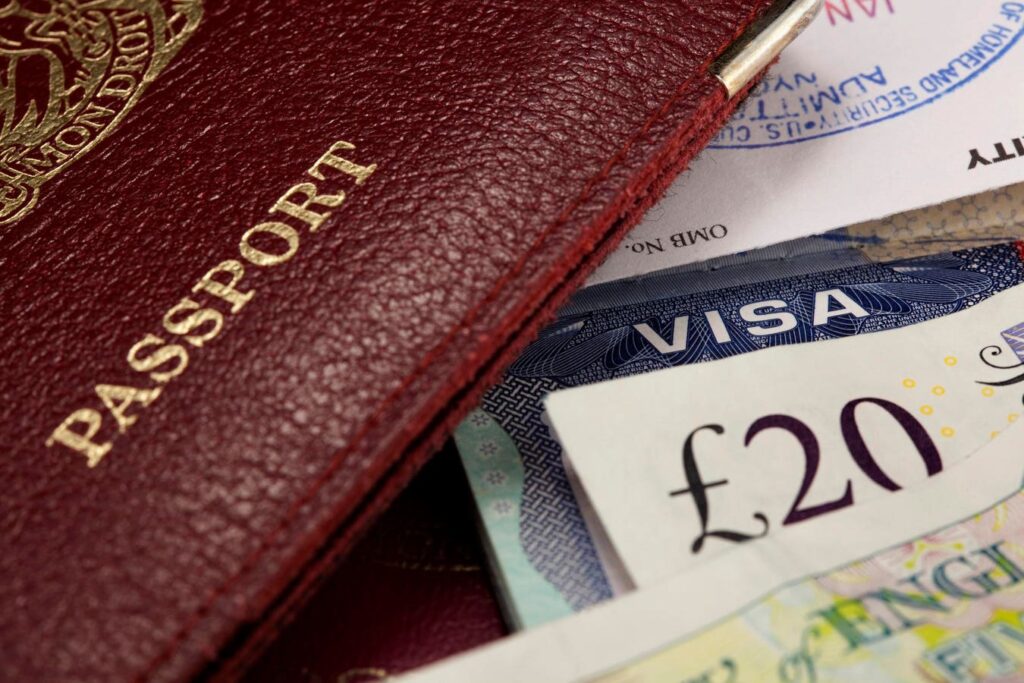Khurram Akhtar – Cofounder of ProgrammersForce.
In one of the most prominent embezzlement cases ever, Malaysian financier Jho Low allegedly siphoned billions from the 1MDB fund, using citizenship by investment (CBI) programs to secure multiple passports and evade law enforcement. This makes one wonder: Are citizenship by investment and residency by investment (RBI) programs so easy to exploit? Sadly, the answer is yes.
CBI and RBI programs allow individuals to acquire citizenship or residency status simply by making significant investments in a country’s economy. For countries like Cyprus, Dominica and Malta, these programs are necessary to create jobs, fund development projects and drive economic growth.
However, Jho Low’s case demonstrates that the CBI and RBI programs are not without risk. Originally designed to attract high-net-worth individuals and stimulate the local economy of a country, these programs are now being used to facilitate financial criminals.
The situation is further exacerbated by faulty and inadequate anti-money laundering (AML) measures that allow criminals to gain access to new passports, cross borders freely and conceal their financial activities under new identities. This calls for governments and businesses to push for tighter AML regulations that ensure these programs facilitate countries without compromising overall security.
CBI/RBI Programs: A Shift From Social Capital To Economic Capital
Where traditional pathways of gaining citizenship and residency require prolonged presence and integration of an individual in a society, CBI and RBI programs allow individuals expedited access to citizenship and residency by substituting prolonged residency with a financial commitment.
The distinction between the two lies in the nature of what constitutes “entry criteria” into the country. Traditional metrics involved time duration, integration of individuals in a society and cultural assimilation, whereas CBI/RBI programs shift this emphasis from social capital to economic capital.
The Bright Side: The Positive Tradeoff For Governments
CBI and RBI programs seek revenue diversification. For example, St. Kitts and Nevis capitalize on its CBI program by attracting affluent investors, contributing significantly to its GDP and bolstering tourism infrastructure.
Similarly, Portugal leverages its RBI “Golden Visa” scheme, which channels foreign direct investment (FDI) into real estate and entrepreneurship, enhancing economic development.
However, the EU’s criticism of CBI/RBI warrants a mention here. In their official statements, the EU parliament has called CBI schemes “objectionable” from an economic, ethical and legal point of view because they pose serious security threats.
The Dark Side: The Lure Of CBI/RBI Schemes For Potential Launderers
CBI/RBI schemes, once intended and designed to facilitate the diversification of less privileged countries’ economies, are now used as a tool by illicit actors who want to commit financial crimes such as corruption, tax evasion, money laundering and fraud. These threats can be divided into three categories:
1. Criminal Actors: Use different residency and citizenship programs to indulge in extensive criminal activities and evade law enforcement agencies.
2. Investment Migration Ecosystem Participants: Service providers such as immigration and migration agents, accountants and wealth managers can misappropriate funds to launder money.
3. Corrupt Public Officials: Public officials can exploit programs by demanding or profiting illicitly from these programs.
Vulnerabilities In CBI/RBI Application Processes
The Jho Low case highlights significant AML risks in citizenship and residency by investment programs. Low allegedly exploited such programs to secure alternative citizenships, facilitating cross-border movement and concealing illicit funds from the 1MDB scandal. Similarly, the Cyprus papers and the Dubai unlocked investigation also showcase the grim reality of CBI/RBI schemes.
These programs, if inadequately regulated, can attract high-risk individuals seeking anonymity or legitimacy. They require individuals to go through a three-stage process. Since a number of stakeholders are involved, an inadequate or faulty practice can disrupt the due diligence process.
1. Pre-Application Phase: Involves multiple stakeholders like financial institutions, wealth managers, marketing agents and concierge firms who assess an individual’s eligibility for the program.
2. Application Processing: This includes dedicated government units or quasi-commercial bodies that follow a chain of command to finalize eligibility.
3. Post-Decision Assurance: Eligibility is further assessed by RBI immigration authorities. However, corruption and bribery are often rampant here.
The Critical Need For AML Due Diligence In CBI/RBI Programs
Second, passports can unlock new opportunities. However, they can also become gateways for financial crimes, thus increasing the need for AML compliance. Robust know-your-customer (KYC) protocols, enhanced due diligence (EDD) for high-risk applicants and thorough verification of fund sources can help mitigate risks, but that is not all; there is more to the story.
Extending The Risk-Based Approach To CBI/RBI Schemes
According to the FATF document on CBI/RBI schemes, there is no one foolproof solution to ensure AML compliance within these programs. However, combining processes like complete oversight, adequate vetting of individuals, continued monitoring and corrective measures can help mitigate risks. But this is just the tip of the iceberg; here are some other solutions to countering the threats.
1. Creation Of Government-Authored Specialized Agencies: Governments should assign passport issuance and investment migration program oversight to independent, specialized agencies, ensuring transparency, accountability and protection from political interference.
2. A Multilayered Vetting Program: This vetting should be carried out independently, and each layer should be explicitly required to screen individuals without being influenced by the screening already done by other layers.
3. Independent Third-Party Due Diligence: Multiple independent investigators should be responsible for vetting the same individual and producing extensive reports before issuing visas.
4. Development Of Prolonged Investment Tracks: The program’s continuation should be contingent upon the individual providing long-term benefits to the host country, thereby ensuring sustainable funding models.
Conclusion
The cases of Jho Low and the 1MDB scandal, alongside Viktor Khrapunov’s exploitation of Swiss residency programs, reveal glaring vulnerabilities in CBI and RBI schemes. Countries can reap significant benefits from CBI/RBI schemes, but they also face increased risks of financial crimes. Their instinct response is to abandon these programs altogether. I disagree with such an approach. As an alternative, countries can apply a risk-based AML approach similar to that used during normal visa issuance to mitigate risks.
Forbes Business Council is the foremost growth and networking organization for business owners and leaders. Do I qualify?
Read the full article here











